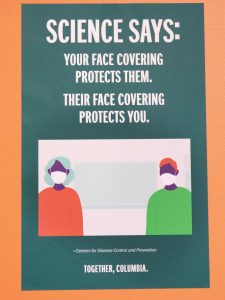Beaches around the world received a makeover over the weekend as volunteers gathered with gloves and garbage bags to clean up trash and debris.
Besides cleaning up items that could pollute or harm wildlife, organizers of the annual event hope to inspire people to stay involved in their local waterways.
On Chicago’s North Side, about 200 people signed up to lend a hand at Montrose Beach, including teachers and students from several area high schools, families with children of all ages and members of local environmental groups, such as Sierra Club and the Alliance for the Great Lakes.
Photo by Lloyd DeGrane
“The beach clean up creates a lot of local awareness, so we get more community groups and individuals involved,” said Cory Jones, a volunteer organizer with Sierra Club in Chicago.
The involvement of local groups has led to public improvements and additions to the beaches, Jones said.
For example, new foot showers at Montrose Beach allow beachgoers to rinse off the foam that sometimes sticks from the water. The beach house is also being renovated.
Montrose was one of 22 beaches in Chicago and 42 in Illinois that were part of last Saturday’s event, according to Alliance for the Great Lakes organizers. Volunteers also worked in Michigan and Wisconsin, making this a growing regional effort.
Jeff Walter, an Alliance intern, received a lot of calls from individuals and groups in the last few weeks, although he was preparing and recruiting in Illinois and Indiana all summer. Some of the recent interest was due to the BP press coverage, which he said helped mobilize people.
With increased awareness and Walter’s efforts, participation in Indiana doubled this year to 14 beaches, compared to seven in 2006. Glenbrook High School was one of those late calls, and officials promised to send 40 to 50 students out to area beaches in Illinois, he said.
Besides the warm fuzzy feelings of “doing good,” the event is an excellent learning opportunity, Walter said, as volunteers help collect actual data that is used to educate and sometimes change laws.
Science teacher Steve Arnam has monitored Montrose Beach for over 20 years, and every year he brings students to the annual beach clean up. A science instructor at North Side College Prep, Arnam teaches aquatic and marine classes as well as chemistry.
Arnam studies and helps preserve “his beach” and knows well its history and ecology, as a scientist and surfer. In addition, he regularly takes samples for water quality tests, which he shares with the Alliance, who share it with the broader-based Ocean Conservancy.
“We use plankton nets and bring it back to the classroom to see who lives here,” Arnam said. “So we know who is affected.”
Each year, the number of students and other participants grows, organizers said, as people enjoy working together on a larger issue that affects all of us.
“It’s growing and it’s working,” said volunteer organizer Art Ward.
Beyond the Great Lakes, clean ups were held last weekend all over the world, on every continent, according to the Ocean Conservancy, the umbrella group based in Washington, D.C. The event is not just about clean up, the group says, it’s also about pollution prevention.
The main point of the event, what organizers say makes it unique, is the data. Tracking the trash can help identify areas of improvement, such as the need for recycling bins or for educational efforts to change behavior of beachgoers.
“This is a global effort, so everywhere in the world people are cleaning up beaches,” Ward said.
Hundreds of thousands of volunteers around the world are each given a data card to record every single item they pick up. All of these data cards are used to produce reports for each region, which help guide conservation efforts.
The most common items found in Chicago beaches: cigarette butts. In 2006, more than 153,000 cigarettes and smoking-related items were collected in Great Lakes beaches alone and a total of 19,645 pounds of trash was removed from area beaches, according to the Alliance’s Adopt-A-Beach newsletter.
The next largest category: food-related items, with more than 109,000 cans, bags, cups, lids, plates, utensils, discarded food, wrappers, containers and bottles collected in the four area states. Balloons make up a third category, with more than 7,500 collected.
One of the on-site volunteers at Montrose Beach was a new Sierra Club member who drove from Aurora to participate. Suzie Thomas left home at 5 a.m. to arrive in time to help set up the tent and do her part for Lake Michigan, which she called a “regional resource.”
“We should all pitch in and take care of our corner of the world,” Thomas said.
Categories:
Eco & Environment Parks & Public Land Public






Be First to Comment